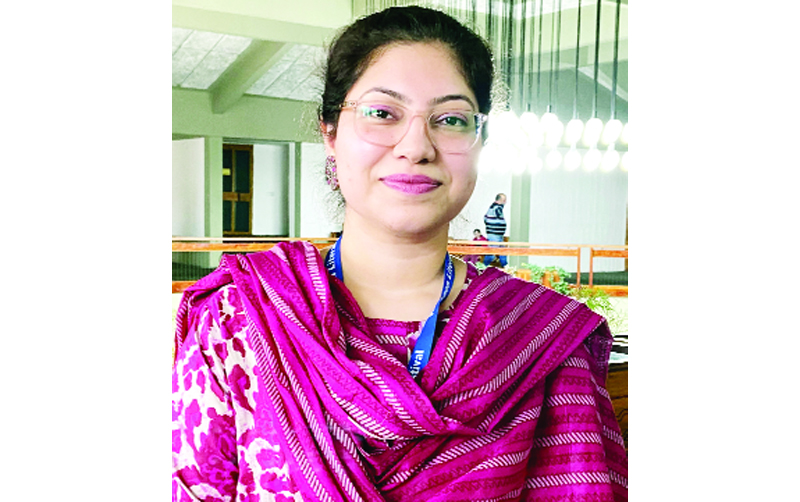Suhail Bhat
Srinagar, Oct 21: Niyati Bhat, a writer and cinema scholar, believes that gatherings like the Kumaon Literary Festival are vital because they bring Kashmiri writers together to discuss current events and the type of work that needs to be done both in Kashmir and in the Indian publishing sector.
She feels Kashmir does not lack talent; rather, it lacks opportunities. Such gatherings, in her opinion, are particularly crucial for Kashmiri women writers because they may foster unity and assist them to achieve their objectives.
“She spoke to Excelsior” on the sidelines of the Literary festival held here at SKICC in Srinagar.
How would the festival benefit writers, especially the young ones from Kashmir?
Niyati Bhat (NB): Initially, representation. It means a lot to represent the Kashmiri diaspora on such a big stage. We lack diversity. There are several well-known English authors who have written on Kashmir, such as Rahul Pandita and Basharat Peer. However, there are several young authors who produce excellent poetry and literature but lack the resources to contact publishers. The publishers search for individuals with connections who are based in cosmopolitan locations like Delhi and are easy to reach. I believe it is critical that publishers pay attention to Kashmir and increase the number of Kashmiri works and such occasions can assist to draw notice to these young authors.
How has your exile aided your writing?
NB: Because of the stories my parents told me as a child about their homes here. Kashmir has been a source of longing in both my career and personal life. I was born in exile. I last went to my parent’s hometown, where all the houses are in a terrible state, in 2016. I also wrote a poem titled “dilapidated houses” to demonstrate how Kashmir informs my work and all the obstacles that come with living in a new place away from your native language and culture. The elderly generation experienced isolation because most of our grandparents and great-grandparents spoke Kashmiri alone, making it difficult for them to interact.
What motivates you to translate the works of Kashmiri authors? What are the key ideas that the authors are illustrating in that work, and how is it structured?
NB: I believe that the reason I have been drawn in translating Kashmiri literature is that, for Pandits, the Kashmiri language is the means of sustenance and we hold on to Kashmir through our language.
When I was looking at the women poets of the twenty-first century, we hardly had any names other than Lala Ded. So, I started researching them and came across Naseem Shafie, Nighat Sahiba, and Deeba Nadir, a Kashmiri short story writer. Translating, in my opinion, involves figuring out where we fall short and where in Kashmiri literature we are not correctly focusing. I’ve done a lot of translation and have worked mostly to highlight the poetry of women.
The authors’ actual lives are the subjects of their writings. Significant poems by Naseem Ji have been written about the once-existent synchronicity and Kashmiriyat. Nighat Ji focuses her writing on issues that affect women.
Why are women writers absent from Kashmir’s literary scene?
NB: They exist, but because the literary community in Kashmir is dominated by men, they are not in the limelight. The lack of a network for the type of work that women poets want to do is the reason we established one; at the moment, it is called Kashmiri Pandit Women in the Arts and Media, but I encourage everyone to join. Because we all work alone, whether as writers, journalists, or painters, even the most fundamental forms of motivation are lacking. As a result, one could argue that connecting them in a network is the beginning of a change.


